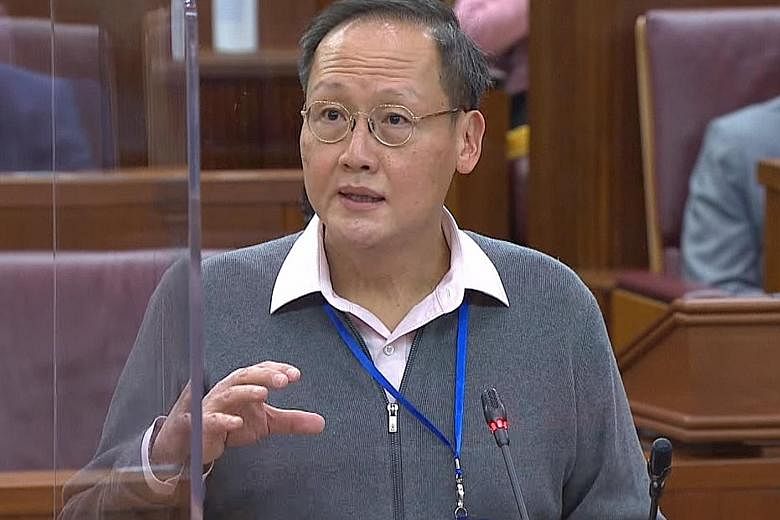Local small and medium-sized enterprises (SMEs) should be given a leg-up in securing government contracts, and this is just one of the many measures that can be explored to help them recover and emerge stronger from the pandemic, said Second Minister for Trade and Industry Tan See Leng.
Dr Tan, who is also Second Minister for Manpower and Minister in the Prime Minister's Office, said in an interview with Money FM 89.3's Howie Lim yesterday that government policies can be better adapted to help start-ups and SMEs scale up.
"No particular policy can be that precise. But I think we can better adapt, we can better tweak (policies) to reach out to an ever-enlarging group of entrepreneurs in Singapore," said Dr Tan.
When these firms reach a certain level, they need validation from government agencies the same way that bigger companies do, he added.
"So in terms of government procurement policies, we can provide them with a lift up, that provides them with a form of credentialing. Then, they can compete internationally, having been certified and validated by the big government-linked companies here in Singapore," said Dr Tan.
He also outlined government measures to help businesses and workers recover and renew themselves.
In the short term, he said, measures like the Jobs Support Scheme (JSS) of wage subsidies and the Self-Employed Person Income Relief Scheme have helped to save the majority of companies and jobs here.
In the medium term, he said, the Jobs Growth Incentive (JGI) and gradual tapering of the JSS will minimise the "cliff effect" that a sudden withdrawal of these relief schemes would have. "That will continue to allay the fears of retrenchment and businesses shutting down."
Last month, Deputy Prime Minister Heng Swee Keat announced the JGI, which supports businesses to hire Singaporeans.
For each new local hire aged below 40, the Government will co-pay 25 per cent of the first $5,000 of gross monthly wages for 12 months from the month of hire. For each new mature local hire aged 40 and above, government support will be double that at 50 per cent.
The JSS was extended by up to seven months, to cover wages paid up to March next year for firms in sectors harder hit by the Covid-19 pandemic, and up to December this year for sectors that are coping well.
But no amount of short-term relief is enough if there are no new businesses and revenue streams coming in, and this is why the Government is exploring ways to open up the country for trade, Dr Tan said. "We are thinking of creative ways where one doesn't need to travel, whether it is through signing digital economy agreements or using Singapore as a hub."
He also assured Singaporeans of the Government's commitment to protect their jobs.
In this regard, recent changes to salary requirements for Employment Passes (EP) and S Passes are a good move, he said.
Since Sept 1, firms applying for new EPs for foreign professionals have to pay them at least $4,500 a month, up from $3,900. For mid-skilled foreigners on S Passes, the qualifying salary will be raised from $2,400 to $2,500, starting from Oct 1 for new applicants and May 1 next year for renewal applicants.
"What we want to see is the ability to differentiate and also to be able to attract global talent. Because when we have that high calibre of talent, we can collectively lift the entire labour force," he said.
"So I would urge everyone not to just look at the EP and S Pass changes as one measure by themselves, but as part of a slew of measures the Government is rolling out to protect Singaporean jobs and - at the same time - level up and attract the best talent to come here."


